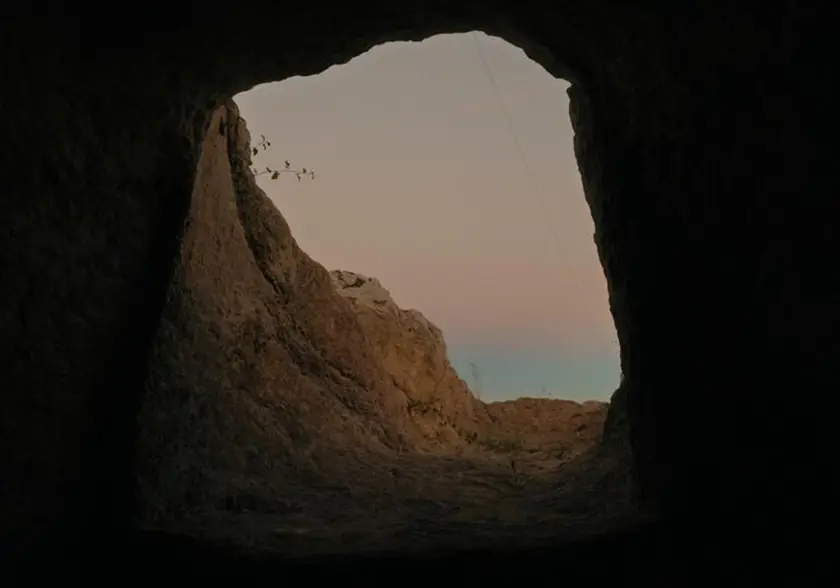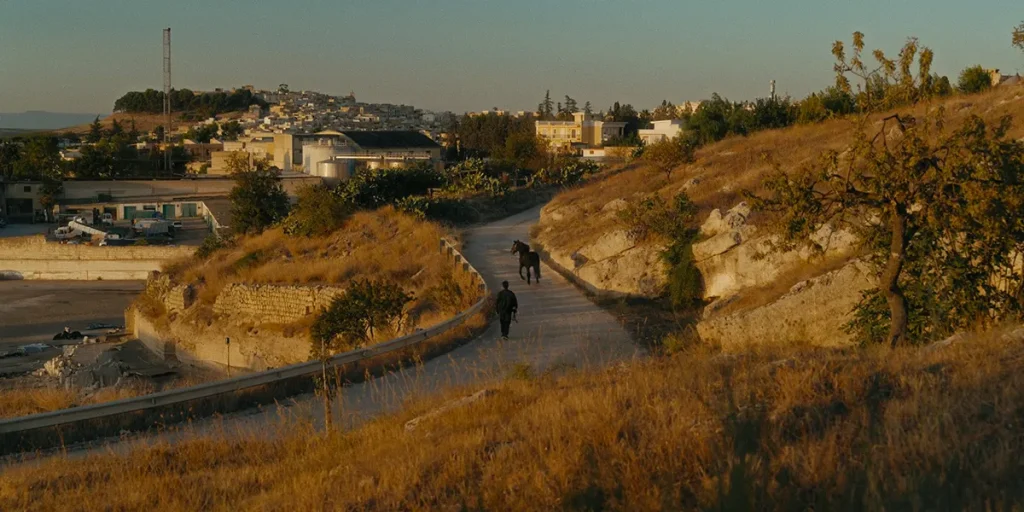Maeve Brennan’s Siticulosa is a captivating documentary that opens the audience’s eyes to a reality many may not be familiar with.
Director: Maeve Brennan
Genre: Documentary
Run Time: 45′
Open City Documentary Festival Screening: May 6, 2025
U.K. Release Date: TBA
U.S. Release Date: TBA
“The whole of Puglia is archaeological,” says one of the characters during their interview in Siticulosa. In many ways, this is entirely what the documentary is about: showcasing the region of Puglia specifically from an archaeological point of view. Directed by Maeve Brennan, Siticulosa was the opening film of the Open City Documentary Festival and had its UK premiere in London on 6 May, 2025.
Siticulosa borrows its name from the description of the region by Horace. The latter talked about Puglia as “siticulosa,” the Latin word for parched and very dry. From the opening scene, this is very much the feeling the audience gets from the region’s beautiful landscape. Through interviews with multiple people who inhabit the territory, including farmers, archaeologists, and local historians, the documentary explores the illicit looting of antiquities from archaeological sites around the region by the tombaroli, individuals who plunder those locations to sell the artefacts in them.
Those in the audience who have seen Alice Rohrwacher’s La Chimera (2023) will be familiar not only with the term tombaroli but also with what this specific group of people is often persecuted and known for. Despite the fact that they have been the subject of a relatively famous and beloved Italian film, this is still very much a niche subject. It is especially fascinating to see such a topic depicted from a documentary point of view. Moreover, Siticulosa makes the audience view the issue from both the side of the archaeologists who want to preserve the sites and the tombaroli who loot them.

The interviews, and especially how they are conducted, are the most fascinating element of Siticulosa. Firstly, they centre heavily on establishing personal narratives rather than exclusively touching on the topic of the documentary. The footage also doesn’t necessarily feel like a formal sit-down talking head interview, as it is very much rooted in the context of the film’s setting, both visually – most of the interviews take place outside in the local territory – and thematically. The tight focus on Puglia seems to be the key to the entire documentary. As the film goes on, the audience becomes more and more familiar with the region that we eventually get to admire and know better.
More importantly, perhaps, Siticulosa involves everyone in this journey. It is not just about the archaeologists or people with academic qualifications; instead, it focuses on the very different people who inhabit this Italian region and are both affected and take part in the archaeological sites. Not only that, but the film also features anonymous interviews with the tombaroli themselves through the voiceover, making the audience understand the point of view of everyone featured in the documentary. This structure also allows the movie to avoid becoming too repetitive with the similar format of interviews intercut with the beautiful scenery of Puglia. However, at times, the audience could potentially lose track of each individual story, as we are hearing so many different narratives all at once.
Overall, Siticulosa is a documentary that works incredibly well both visually and thematically. On the one hand, the film really takes us into the reality of Puglia, an Italian region that most of the audience is probably not going to know much about, by highlighting the beauty of the region. On the other hand, it also opens our eyes to a fascinating perspective about what archaeological work and looted antiquities look like today.
Siticulosa: Movie Plot & Recap
Synopsis:
Siticulosa takes the audience to Puglia, where the local tombaroli raid the tombs and archaeological sites to sell and profit from the antiquities found in them. This causes great damage to the people who inhabit the region and, mostly, to the actual sites that are being illicitly plundered.
Pros:
- The documentary does a great job of balancing different perspectives from everyone who might be involved in Puglia’s archaeological sites, including all voices and perspectives.
- The strict focus on Puglia, both thematically and visually through the B-roll footage, makes Siticulosa a very unique and captivating documentary.
Cons:
- Featuring so many different voices in the documentary does make it harder for the audience to keep track of each individual story.
Siticulosa was the opening film of the Open City Documentary Festival, where it was screened on 6 May, 2025. Read our list of 10 movies to watch at the festival below!

